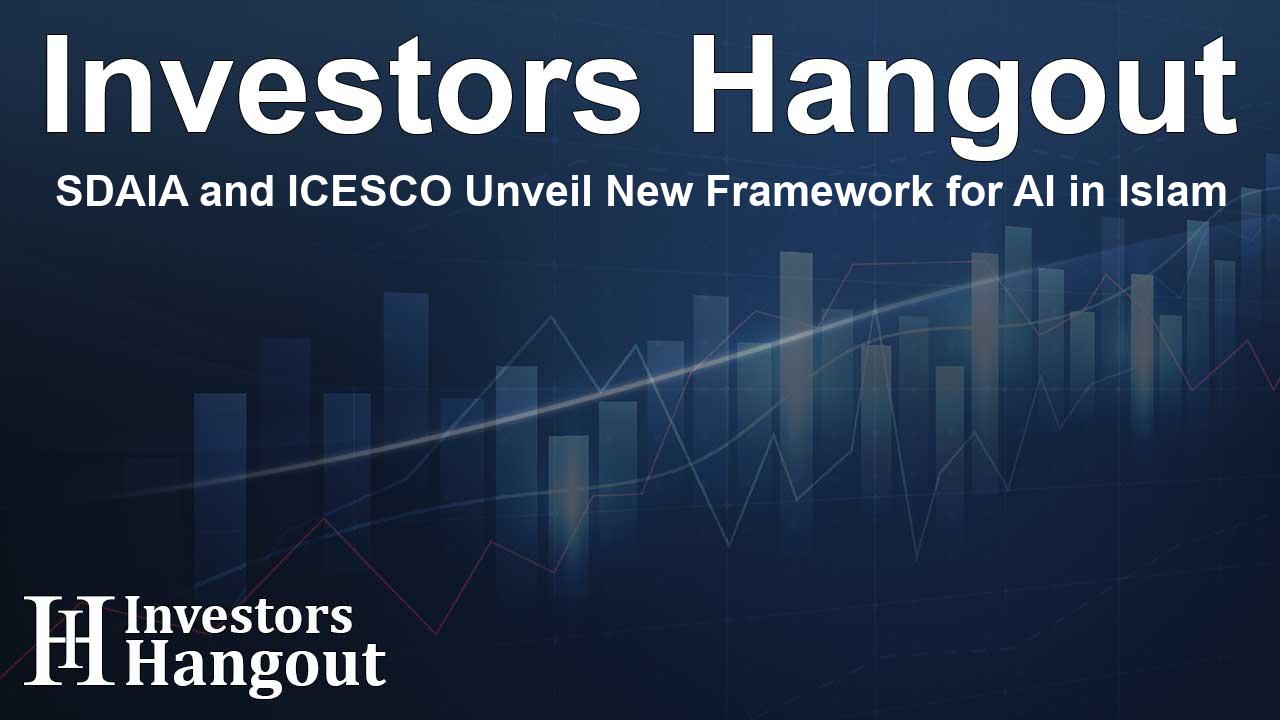SDAIA and ICESCO Unveil New Framework for AI in Islam

New Framework for Artificial Intelligence in the Islamic World
The Islamic World Educational, Scientific and Cultural Organization (ICESCO) and the Saudi Data and AI Authority (SDAIA) have collaborated to create an innovative document known as the Riyadh Charter for AI. This initiative is designed to weave AI technology together with Islamic values and principles. The charter aims to promote sustainable development and strengthen international cooperation in the field of artificial intelligence.
Significance of the Launch
The launch was a momentous occasion during a session titled 'Strategic Governance of AI between Legislation and Ethics' at the third edition of the Global AI Summit (GAIN). Esteemed figures were in attendance, including Dr. Salem bin Mohammed Al-Malik, the Director General of ICESCO, who underlined the necessity of aligning new technologies with ethical standards that are rooted in various cultures and traditions. Dr. Abdullah bin Sharaf Al-Ghamdi, Chairman of SDAIA, also spoke about the united efforts to leverage AI for the common good.
Goals of the Riyadh Charter
The Riyadh Charter's main aim is to encourage the development of AI technologies in a way that aligns with the ethical principles of the Islamic community. It intends to establish an open forum where governments, policymakers, researchers, and international organizations can come together to share knowledge and insights related to the future of AI applications, ensuring that they reflect common human values.
Strengthening Global Collaborations
The launch of the Riyadh Charter illustrates SDAIA's ongoing effort to build meaningful partnerships with international organizations. By utilizing advanced technologies like AI, these collaborations are designed to drive comprehensive societal progress. SDAIA is a crucial national reference point for data and AI initiatives, contributing significantly to the broader vision for the Kingdom's digital transformation journey.
Encouraging Ethical AI Development
In our increasingly tech-driven world, the ethical development of AI has become a crucial topic. The Riyadh Charter invites stakeholders to participate in discussions and share their experiences on how AI can be implemented in ways that adhere to Islamic teachings. By establishing standards for ethical AI, the Charter aims to foster trust and dependability in AI systems used across various sectors.
The Role of ICESCO
ICESCO plays a vital role in the Riyadh Charter, with its active involvement highlighting the organization's dedication to enhancing educational and scientific collaboration among member states. The Charter serves as a guiding framework for the integration of AI innovations into both education and cultural sectors, ultimately striving for equitable access and development.
Vision for the Future
As artificial intelligence continues to evolve quickly, the Riyadh Charter represents a crucial step towards shaping the future of AI within the Islamic world. It promotes open discussions about AI's societal implications and envisions using technology as a catalyst for positive change. By maintaining high ethical standards and encouraging collaboration, the Charter aims to steer AI innovation in a way that resonates with core human values.
Frequently Asked Questions
What is the Riyadh Charter?
The Riyadh Charter is a framework created by SDAIA and ICESCO to integrate AI technologies with Islamic principles while promoting sustainable development.
Where was the Riyadh Charter launched?
The Charter was launched at the Global AI Summit (GAIN), a key event focused on advancements in the field of artificial intelligence.
Who are the key figures involved in the launch?
Key individuals at the event included Dr. Salem bin Mohammed Al-Malik from ICESCO and Dr. Abdullah bin Sharaf Al-Ghamdi from SDAIA.
What are the goals of the Riyadh Charter?
The Charter's objectives include ensuring that AI technologies are developed ethically and in sync with Islamic values while encouraging global collaboration.
How does the Riyadh Charter promote collaboration?
It encourages governments, researchers, and organizations to exchange knowledge and best practices regarding the responsible application of AI in society.
About The Author
Contact Henry Turner privately here. Or send an email with ATTN: Henry Turner as the subject to contact@investorshangout.com.
About Investors Hangout
Investors Hangout is a leading online stock forum for financial discussion and learning, offering a wide range of free tools and resources. It draws in traders of all levels, who exchange market knowledge, investigate trading tactics, and keep an eye on industry developments in real time. Featuring financial articles, stock message boards, quotes, charts, company profiles, and live news updates. Through cooperative learning and a wealth of informational resources, it helps users from novices creating their first portfolios to experts honing their techniques. Join Investors Hangout today: https://investorshangout.com/
The content of this article is based on factual, publicly available information and does not represent legal, financial, or investment advice. Investors Hangout does not offer financial advice, and the author is not a licensed financial advisor. Consult a qualified advisor before making any financial or investment decisions based on this article. This article should not be considered advice to purchase, sell, or hold any securities or other investments. If any of the material provided here is inaccurate, please contact us for corrections.
